|
The Hellenic Genocide
Quotes from historical documents and related Photos. |
|||
CHAPTER XVI: "I was told that cans of petroleum had been already stored in all the police stations and other places, ready to fire the town at a moment's notice. As Constantinople is largely built of wood, this would have been no very difficult task. But they were determined to destroy more than these temporary structures; the plans aimed at the beautiful architectural monuments built by the Christians long before the Turkish occupation. The Turks had particularly marked for dynamiting the Mosque of Saint Sophia. This building, which had been a Christian church centuries before it became a Mohammedan mosque, is one of the most magnificent structures of the vanished Byzantine Empire. Naturally the suggestion of such an act of vandalism aroused us all, and I made a plea to Talaat that Saint Sophia should be spared. He treated the proposed destruction lightly." There are not six men in the Committee of Union and Progress," he told me, "who care for anything that is old. We all like new things!"" CHAPTER XX: "They apparently believed that the world would judge them, after the war was over, not by the way they treated their own subject peoples but by the way they treated the subjects of the enemy powers. The result was that a Frenchman, an Englishman, or an Italian enjoyed far greater security in Turkey than an Armenian, a Greek, or a Jew." CHAPTER XXII: "We must realize that the basic fact underlying the Turkish mentality is its utter contempt for all other races. A fairly insane pride is the element that largely explains this strange human species. The common term applied by the Turk to the Christian is "dog," and in his estimation this is no mere rhetorical figure; he actually looks upon his European neighbours as far less worthy of consideration than his own domestic animals." CHAPTER XXII: "When they took possession of a land, they found it occupied by a certain number of camels, horses, buffaloes., dogs, swine, and human beings. Of all these living things the object that physically most resembled themselves they regarded as the least important. It became a common saying with them that a horse or a camel was far more valuable than a man; these animals cost money, whereas "infidel Christians" were plentiful in the Ottoman countries and could easily be forced to labour." CHAPTER XXII: "Yet the early sultans gave these privileges not from a spirit of tolerance, but merely because they looked upon the Christian nations as unclean and therefore unfit to have any contact with the Ottoman administrative and judicial system. The sultans similarly erected the several peoples, such as the Greeks and the Armenians, into separate "millets," or nations, not because they desired to promote their independence and welfare, but because they regarded them as vermin, and therefore disqualified for membership in the Ottoman state." CHAPTER XXII: "The attitude of the Government toward their Christian subjects was illustrated by certain regulations which limited their freedom of action. The buildings in which Christians lived should not be conspicuous and their churches should have no belfry. Christians could not ride a horse in the city, for that was the exclusive right of the noble Moslem. The Turk had the right to test the sharpness of his sword upon the neck of any Christian." CHAPTER XXII: "And for centuries the Turks simply lived like parasites upon these overburdened and industrious people. They taxed them to economic extinction, stole their most beautiful daughters and forced them into their harems, took Christian male infants by the hundreds of thousands and brought them up as Moslem soldiers. I have no intention of describing the terrible vassalage and oppression that went on for five centuries; my purpose is merely to emphasize this innate attitude of the Moslem Turk to people not of his own race and religion---that they are not human beings with rights, but merely chattels, which may be permitted to live when they promote the interest of their masters, but which may be pitilessly destroyed when they have ceased to be useful. This attitude is intensified by a total disregard for human life and an intense delight in inflicting physical human suffering which are not unusually the qualities of primitive peoples." CHAPTER XXII: "I have alluded to the difficulties which I had with them over the Christian schools. Their determination to uproot these, or at least to transform them into Turkish institutions, was merely another detail in the same racial progress. Similarly, they attempted to make all foreign business houses employ only Turkish labour, insisting that they should discharge their Greek, Armenian, and Jewish clerks, stenographers, workmen, and other employees." The Hellenic Genocide Quotes from historical documents and related Photos. Previous page | Initial page | Site Map | Next page (8th of 29) |
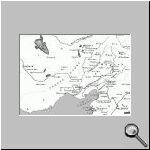
Konia to Aleppo.
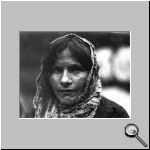
A refugee woman.
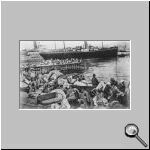
Refugees from Smyrna.
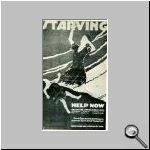
"STARVING
HELP NOW."
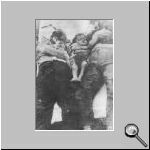
An Hellenic family killed by the Turks.
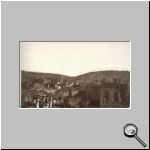
The Armenian quarter of Smyrna. Burnt.
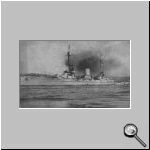
Battleship Goeben. Germany faked its sale to Turkey.
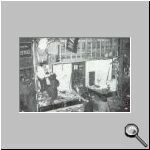
Turks looting and destroying.
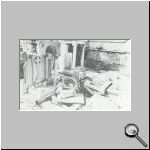
Destroyed graves at the cemetery of Sisli.
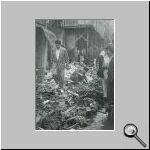
Hellenes look at the destruction of their properties.